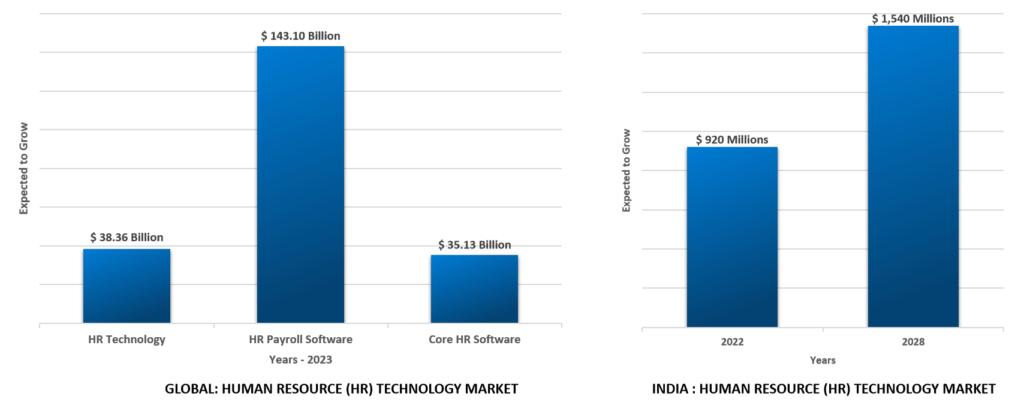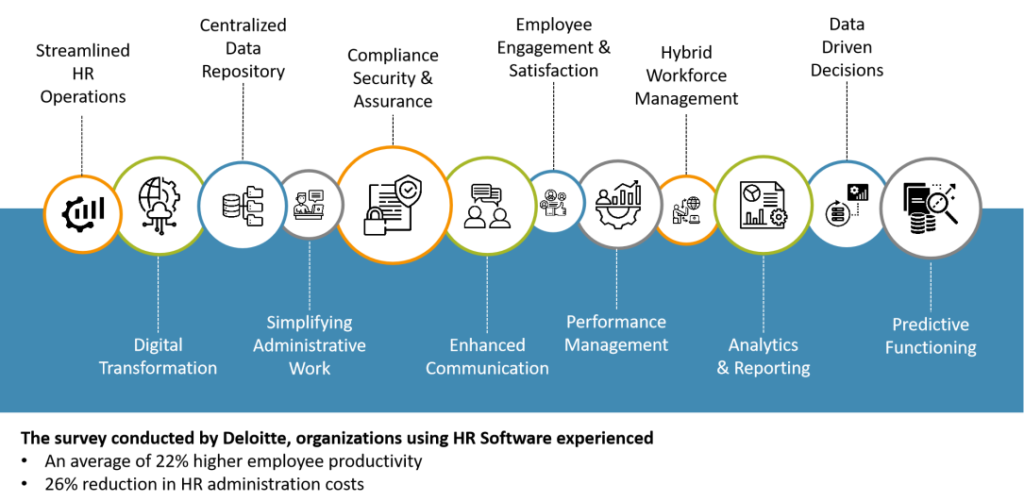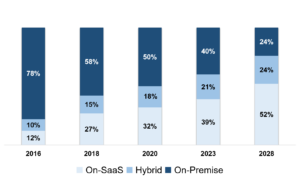Introduction
The Human Resources Technology (HR Tech) industry is undergoing rapid transformation, driven by technological advancements, changing workforce dynamics, and the growing importance of HR functions within organizations. In this blog, we will explore the forecast trends and growth prospects of the global HR Tech solution market for the year 2030, based on various reputable sources and reports.
1. Market Growth Predictions
According to multiple industry reports, the HR Tech solution market is poised for significant growth by 2030:
- HR Technology Market Expected to Grow to $38.36 Billion: A report by Economic Times forecasts that the HR technology market will grow from $23.32 billion in 2021 to a staggering $38.36 billion by 2030.
- HR Payroll Software Market to Reach $143.1 Billion: The Logical Indian reports that the HR payroll software market is projected to reach an impressive $143.1 billion by 2030.
- Core HR Software Market Expected to Reach $35.13 Billion: Market Research Future (MRFR) predicts that the core HR software market will achieve a market size of $35.13 billion with an 11.1% CAGR by 2030.

2. Factors Driving HR Tech Market Growth

- Streamline HR Operations: Automation and optimization enhance efficiency.
- Digital Transformation: Integration of advanced tech for a competitive edge.
- Centralized Data Repository: Facilitates easy access and management of employees’ data.
- Simplifying administrative work: Automation reduces manual workload.
- Compliance Security and Assurance: Ensures regulatory compliance and data security.
- Enhanced communication: Improves collaboration and connectivity among employees.
- Employee Engagement and Satisfaction: Tools support feedback, recognition, and personalized experiences.
- Performance management: Employee development, remote work, integration, user experience, and compliance drive the growth of HR tech
- Hybrid workforce management: Supports the effective management of remote and hybrid teams.
- Analytical and reporting: Provides insights for data-driven decision-making.
- Data-driven decisions: Informs strategic choices in talent management and recruitment by leveraging data-driven insights across the HRMS, benefiting overall HR operations and enabling informed decision-making.
- Predictive Functioning: Utilizing analytics, this function predicts trends and addresses challenges ahead of time, enabling proactive preparation for the future.
3. DEPLOYMENT: MARKET SHARE

India’s SaaS Industry to Reach $ 48 Billion by 2030
4. Challenges and Opportunities
- Integration Complexity:
Integrating HR Tech solutions with existing systems can be complex and challenging for organizations. This presents an opportunity for HR Tech providers to offer seamless integration solutions.
- Talent Shortage:
The HR Tech industry itself is facing a talent shortage. HR Tech companies are seeking skilled professionals who can develop and implement innovative solutions, creating job opportunities.
- Emerging Markets:
As HR Tech adoption continues to grow globally, emerging markets offer untapped opportunities for expansion and market penetration.
5. Future Trends in HR Tech
Artificial intelligence will play a pivotal role in providing actionable HR insights, aiding in better decision-making.
- Enhanced Employee Experience:
HR Tech will focus on enhancing the overall employee experience, including wellness programs, career development, and employee engagement.
- Personalization:
HR Tech solutions will become more personalized, offering customized experiences to employees and HR professionals.
- Artificial Intelligence (AI) and Machine Learning (ML):
Integration of AI and ML for predictive analytics in talent acquisition, employee engagement, and performance management. AI-driven chatbots for handling HR queries and automating routine tasks.
- Robotic Process Automation (RPA):
Automation of repetitive HR tasks, freeing up time for HR professionals to focus on strategic initiatives.
- Virtual and Augmented Reality (VR/AR):
Use of VR/AR in training programs, creating immersive learning experiences.
- Block-chain in HR:
Use of blockchain for secure and transparent handling of employee records, certifications, and credentials.
- Gamification in Learning and Development:
Integration of gamification elements in training and development programs to enhance engagement and learning outcomes.
- Adoption of HR Chat-bots:
Expansion of HR chatbots for handling routine HR queries, providing quick information, and automating HR processes.
Conclusion: The global HR Tech solution market is on a trajectory of remarkable growth, driven by factors such as digital transformation, remote work, data analytics, and compliance requirements. As we approach 2030, it’s clear that HR Tech will continue to be a critical component of modern organizations, playing a pivotal role in managing their most valuable asset – their workforce.


1 Comment
This website is an absolute gem! The content is incredibly well-researched, engaging, and valuable. I particularly enjoyed the [specific section] which provided unique insights I haven’t found elsewhere. Keep up the amazing work!